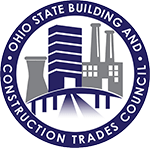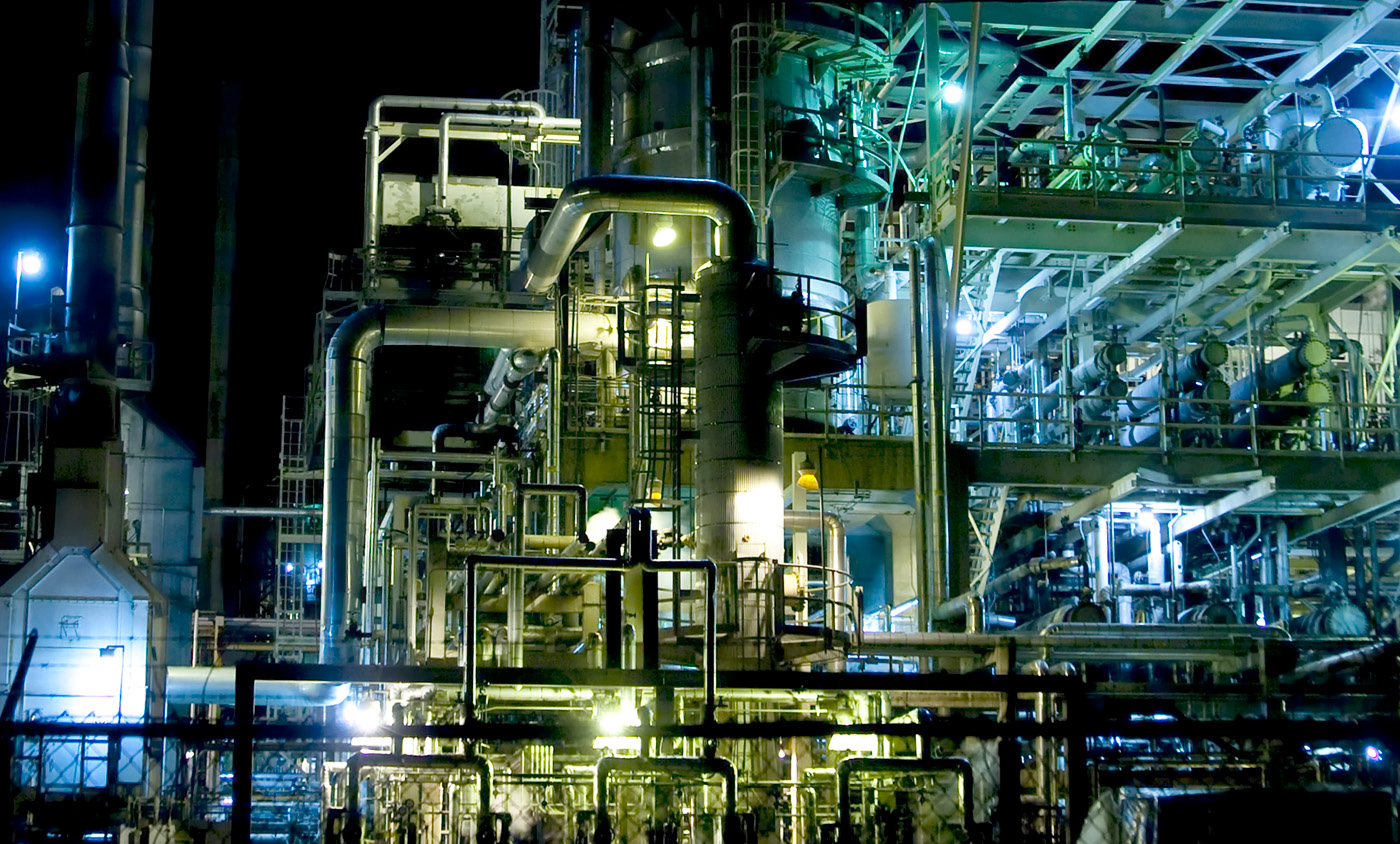On Oct. 26, Ohio Building Tradespeople and refinery officials testified in support of HB 235, the High Hazard Training Certification Act (HHTC). Passage of this legislation would improve the safe operation of petroleum refineries in Ohio. Refineries remain amongst the most dangerous facilities in our local communities and pose a great risk to the lives of workers who work in these facilities:
To: Ohio House of Representatives – Commerce and Labor Committee
From: Michael Knisley
Date: 10/26/2021
Re: HB 235 – High Hazard Training Certification Act
Chairman Stein / Vice-Chair Johnson / Ranking Member Lepore-Hagan:
My name is Mike Knisley. I’m a pipefitter by trade. I’ve worked in both the Lima and Oregon refineries. I’m a lifelong member of the Lima community. My home and property is located 7 miles downwind of the now Cenovus Oil Refinery in Lima, which is the largest oil refinery in Ohio.
I’m also the Executive Secretary-Treasurer of the Ohio State Building and Construction Trades Council. We represent nearly 100,000 building and construction tradespeople—men and women that put on a hardhat and go to work at a construction jobsite here in Ohio every day.
Our members and partner contractors believe in exceptional training; good wages; competitive benefits; and our goal is to ensure that our workers return home safely to their families each and every night. Ohio’s Building Trades members have the proper licensing, apprenticeship and safety training to build and maintain everything you can imagine, including Ohio’s major oil refineries. For the reasons that follow, I offer this testimony in support of House Bill 235.
The safety provisions in House Bill 235, the High-Hazard Training Certification Act are critical to securing the safety of the construction workers who build and maintain Ohio’s oil refineries. In addition, House Bill 235 ensures the protection of public health and safety in the refinery communities where our tradespeople live and raise their families.
Let me tell you, the loss of even one worker causes tremendous devastation to their family, their workplace, and their community.
There’s a lot at stake here. I don’t think it is too much to ask that there be a level of training that holds companies and workers accountable for safety in high-hazard oil refineries.
The Ohio Building Trades lead our industry in safety on major construction projects. Our safety record in Ohio’s oil refineries represents the gold-standard in high-hazard construction maintenance:
Lima and Toledo Building Tradespeople have worked 21 million maintenance workhours in Ohio’s oil refineries over the past 20 years without a single lost-time injury. With BP and Cenovus’ new outsourcing approach, these workers will be replaced by low-wage workers with reduced safety and skills training and zero institutional knowledge of Ohio’s complex high-risk oil refinery facilities.
No matter how experienced or well trained in their skilled trade and safety precautions, our Ohio refinery workers are put at grave risk if they work alongside an unskilled worker during a plant turnaround or maintenance cycle.
Since the early 1990s, OSHA has documented that petroleum refineries specifically pose acute risk of debilitating workplace accidents and worker fatalities. A skilled worker shortage, paired with lax safety and skills training requirements has led to a recent surge in serious OSHA safety violations in petroleum refineries. All it takes is one mistake for a refinery accident to impact an entire community like my hometown of Lima.
The high barrier to entry in the petroleum-refining industry means that not just any business owner can open a refinery. Only established petroleum industry leaders have the expertise to own petroleum refineries. Similarly, our state must have reasonable and wise training standards for workers in Ohio’s oil refineries. You can’t allow unscrupulous contractors and subcontractors to bring in inexperienced, untrained people to work in Ohio’s refineries. Refinery construction is work that has zero margin for error.
Ohio’s Building Tradespeople must have a voice in policies that protect them in high-hazard facilities. We must have reasonable policies that protect Ohio communities from industrial accidents in high-risk refineries. As a tradesperson who has worked in our state’s oil refineries, I urge this body to protect Ohio workers and the public from catastrophic incidents by implementing the high-hazard training standards in House Bill 235.
Thank you for your consideration of this very important proposal.
Sincerely,
Mike Knisley
To: Ohio House of Representatives – Commerce and Labor Committee
From: Scott Hayes
Date: 10/26/2021
RE: HB 235 – High Hazard Training Certification Act
Chairman Stein / Vice-Chair Johnson / Ranking Member Lepore-Hagan:
Chairman Stein, committee members, it is my pleasure to join you today to speak in favor of HB 235, a bill that ensures that work done in high-hazard environments is done safely and without impact to the communities in which our facilities operate.
I’m Scott Hayes, Health, Safety, Environmental and Government Relations manager for the Toledo Refining Company. We are proud of our 130-year history of bringing high-quality and affordable products to the market place. A few points concerning HB 235 for your consideration:
- It applies only to Ohio’s oil refineries per the bill’s definition of “High Hazard Facility” (specific NAICS code)
- It applies only to construction workers (NOT direct refinery employees)
- It creates 2 classifications of Journeyman construction workers; Class A & Class B. This provides flexibility for covered facilities.
- Class A Journeyman: Graduate of any state or DOL approved apprenticeship program + OSHA 30 safety certification
- Class B Journeyman: Individual with 5 years industrial experience in his craft + OSHA 30 safety certification
- Apprentices in any state or DOL approved apprenticeship training programs are included
- NO WAGE OR BENEFIT REQUIREMENTS; NO DESIGNATION THE PROGRAMS MUST BE UNION PROGRAMS!
- As a health and safety professional with over 30 years of experience, I’ve observed that watering down safety requirements, including training and mentoring, inevitably leads to poor safety performance, poor productivity, rework and poor quality.
- In an industry like ours, we have to be cognizant of our potential effect on the communities in which we operate. Poor training can lead to catastrophic failures that could have profound effects to adjacent neighbors. Therefore, only the most qualified, credentialed, and mentored employees are allowed onsite.
- I have been at facilities when short-sighted efforts to save money by lessening requirements of labor have resulted in regretful consequences. In my opinion, you get what you pay for, and paying more for high quality labor is always the better buy.
- I believe that I can speak with some credibility on the issue, as the facility that I work for has just celebrated over 1,000,000 safe work hours and over a year without an OSHA recordable injury for employees and contractors alike- something that is rare, and something that we are quite proud of. We credit this success to our high expectations and requirements for working.
Thank you for your consideration of this important safety legislation.
Scott Hayes
Toledo Refining Company
To: Ohio House of Representatives – Commerce and Labor Committee
From: Brad Wendel
Date: 10/26/2021
RE: HB 235 – High Hazard Training Certification Act
Chairman Stein / Vice-Chair Johnson / Ranking Member Lepore-Hagan:
My name is Brad Wendel. I’m a plumber-pipefitter and lifelong member of Local 776 in Lima. I was elected Business Manager to represent the pipefitters who go to work every day in Lima’s refinery and chemical plants. Lima tradespeople have a long history in our community. Lima remains one of Ohio’s strongest industrial towns because of our local construction workforce.
Lima Building Tradespeople have built and maintained the Lima refinery since the early 1900s. Now, the new owner Cenovus is outsourcing 3,000 local, skilled construction jobs to out-of-state, unskilled labor.
When a company like Cenovus comes in and finds a cheaper construction option, they push local workers – with their exceptional safety and specialized skills training – to the side. Apprentices in the Plumber-Pipefitters joint labor-management training program do 246 hours a year in the classroom for their apprenticeship – in the field they get 2,000 hours. We provide regular training upgrades on the industrial and refining facilities where we do most of our work.
The local tradespeople we send to the Lima refinery know each unit, they know lock-out/tag-out, confined spaces. It’s all dangerous stuff. If you walk into that refinery without having drilled on these protocols, it can be deadly. You can’t just walk in off the street or even from an out-of-state refinery and know the place. Experience matters.
That’s why there’s so much concern from people in Lima about the new workers who’ve come into our town. Cenovus contractors are posting hiring ads all over the internet because they don’t have enough construction workers to complete the turnaround. You can be working at Pizza Hut one day and go find a job as a non-union pipefitter the next day – that’s the real dangerous part.
At Plumbers and Pipefitters 776, we invest about $750,000 each year into training our Apprentices. There is no “Second Place” to a joint labor-management apprenticeship as far as high-hazard facility training and safety training goes. As far as cut-rate contractors go, they offer nothing by comparison.
The firemen and police officers and business owners and home owners and parents who send their kids to school down the street from the refinery – they are absolutely right to worry with Cenovus bringing in unskilled people to replace local Building Tradespeople on the refinery maintenance turnaround. The work they’re doing today can affect our community for years to come.
I always worry about safety. The Lima Refinery operators, the USW workers, these are people we work with day in and day out. They’re like brothers and sisters to us. We want to see everyone in Lima come home from work safe.
Lima Building Tradespeople and 776 pipefitters have been maintaining that refinery since 1906. And it shows. Our guys know the Lima refinery. This is their community. They care what happens. We know that working at the Lima refinery, the wrong thing going wrong will devastate the people you care about. It could flatten Lima for miles.
An unskilled worker comes to the Lima Refinery from out of town, they’re just there for a paycheck and per diem. They don’t care what the area looks like when they’re done.
Talk with our Lima and Shawnee Township public safety officials. They don’t want to get the 911 calls after an explosion or a chemical leak at that refinery.
Local construction workers are invested in this refinery’s safety and success. That’s what’s putting food on our tables. In the last 15 years, we’ve rebuilt several Lima refinery units solely with Lima Building Trades labor. Our construction quality and safety – the condition of that facility – that’s a big reason why Cenovus bought the Lima Refinery from Husky in 2020.
I’m not a pro-regulations kind of guy. Lima Tradespeople are partners to our end-clients and contractors. We want them to stay in business and to earn the revenue they need – we help them with that. But we must require adequate safety. We won’t put Lima lives on the line because some Canadian executives want to save a quick buck on safety and skilled labor.
Just read a few of the refinery accident reports from Texas. House Bill 235 can literally save Ohio lives. Safety should be our biggest priority in high-hazard facilities. Lima Building Tradespeople don’t cut corners on safety or skills training in any instance – especially in an oil refinery in our backyard.
Thank you for considering this urgent safety legislation.
Brad Wendel
Business Manager
Plumbers and Pipefitters LU776

